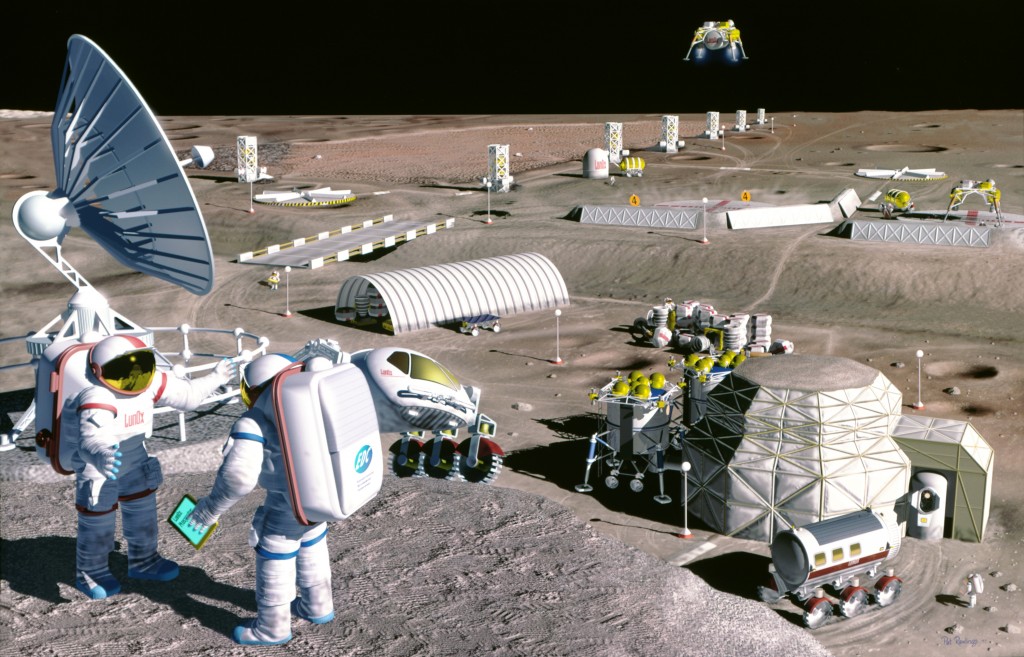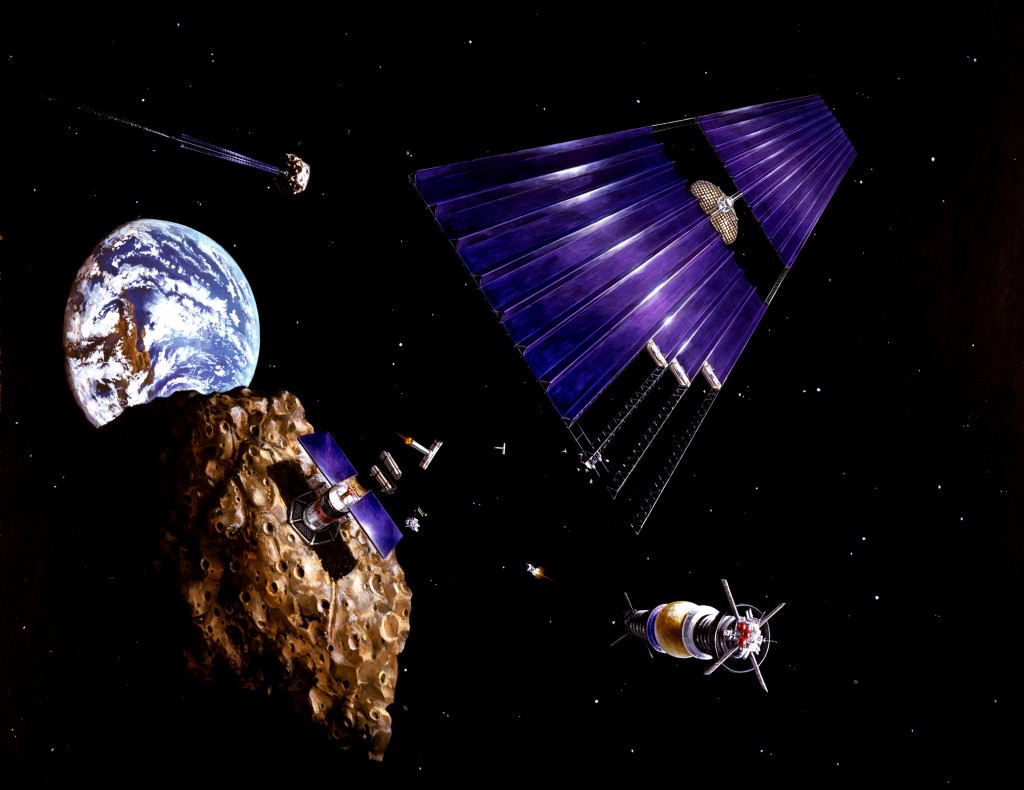 Let’s imagine that humankind is finally space-bound, first placing human outposts on the planets and moons of our solar system before moving on to the stars. The United States has constructed permanent colonies on Mars. Micronesia has established an island nation in the seas of Europa. Russia colonized the Moon’s near side and stood up a government to manage and regulate its permanent citizens.
Let’s imagine that humankind is finally space-bound, first placing human outposts on the planets and moons of our solar system before moving on to the stars. The United States has constructed permanent colonies on Mars. Micronesia has established an island nation in the seas of Europa. Russia colonized the Moon’s near side and stood up a government to manage and regulate its permanent citizens.
China declared the Moon’s dark side its own territory and built military bases on the borders to defend it. Private industry’s fleets of excavation ships race for the asteroids, determined to beat their rivals to mine the incredible wealth of minerals. The winners organize and arm space-born police forces to deter piracy and invasion by competitors.
Um … on who’s authority? Are the planets and their moons fair game for settlement and colonization, like the original Mayflower settlers, or the mad land rushes of the 19th Century American West? Or are they legally controlled provinces of the Earth, like the territorial offshore and international waters as defined by the treaties and conventions of the United Nations? Are the asteroids there for any corporation or wildcatter to exploit?
The answer is, it all depends.
The controlling document for the authorized use of space is the Outer Space Treaty of 1967. Originally ratified by the US, the Soviet Union and Great Britain, as of 2015 a total of 103 nations (out of 195) have ratified it and another 25 nations have signed but not yet ratified. The language of the treaty is surprisingly broad; it applies to “outer space, including the moon and other celestial bodies”.
This encompasses not just the planets of our solar system and their moons, but also the asteroids and all other celestial bodies (which could include planets around other stars, I suppose, though that’s not likely to be contested any time soon).
 The treaty’s language is also very specific. It states in part:
The treaty’s language is also very specific. It states in part:
- The exploration and use of outer space shall be carried out for the benefit and in the interests of all countries and shall be the province of all mankind;
- Outer space shall be free for exploration and use by all States (i.e. nations);
- Outer space is not subject to national appropriation by claim of sovereignty, by means of use or occupation, or by any other means;
- States shall not place nuclear weapons or other weapons of mass destruction in orbit or on celestial bodies or station them in outer space in any other manner;
- The Moon and other celestial bodies shall be used exclusively for peaceful purposes;
- States shall be responsible for national space activities whether carried out by governmental or non-governmental entities;
So according to the Outer Space Treaty, any nation, or group of nations, could establish a permanent colony on the planets or their moons. But they could not declare that colony their national territory.
In the examples I gave above, the United States and Russia would be on solid ground as long as their activities remain “peaceful” (e.g. exploration and science). China, a ratifier of the Treaty, would not, since it both declared its colony a territory and set up military bases to defend it.
However, Micronesia’s island nation on Europa does not violate the treaty, since Micronesia is one of the nations who has neither signed nor ratified it.
 And what about private industry mining the asteroids for profit? A more heated discussion has arisen there. The contention is over the meaning of “national space activities” in the treaty.
And what about private industry mining the asteroids for profit? A more heated discussion has arisen there. The contention is over the meaning of “national space activities” in the treaty.
Michael J. Listner, writing in The Space Review, contends that Outer Space Treaty law does apply to commercial space activities, at least in the United States. The treaty grants nations the responsibility for “non-governmental entities” operating in space, and a treaty ratified by the United States makes it the supreme law of the land under Article VI of the United States Constitution.
So Listner argues, “the Outer Space Treaty’s standing as the supreme law of the land delegates to the federal government of the United States the power over commercial space activities, [and it is not, as] some advocates claim … reserved to private individuals by the 10th Amendment.”
On the other hand, Rand Simberg, writing in The New Atlantis, asserts that “it is still not clear that the ‘national activities’ referred to here would include private activities and property claims not made on behalf of a national government”.
And he cites space-law scholar Stephen Gorove’s argument that “the treaty in its present form appears to contain no prohibition regarding … an individual acting on his own behalf or on behalf of another individual or a private association or an international organization [and so they] could lawfully appropriate any part of outer space, including the moon and other celestial bodies.”
 So where do we stand? By international treaty no nation, or individuals or corporations acting on their behalf, can lay claim to the planets or their moons or to asteroids. But for private citizens or entities acting on their own, evidently the issue isn’t yet settled and is a topic for animated debate.
So where do we stand? By international treaty no nation, or individuals or corporations acting on their behalf, can lay claim to the planets or their moons or to asteroids. But for private citizens or entities acting on their own, evidently the issue isn’t yet settled and is a topic for animated debate.
Rand Simberg has an even stronger opinion here:
“If we wish to see humanity flourish in space, we have to recognize that the Outer Space Treaty is a relic of a different era. Fresh interpretations may not suffice: we may soon have to renegotiate and amend the treaty — or even completely scrap it and start from scratch — if we want not just to protect space as a mere scientific preserve but to open it for settlement as a grand new frontier.”
Copyright 2015 Dandelion Beach LLC Images: NASA









